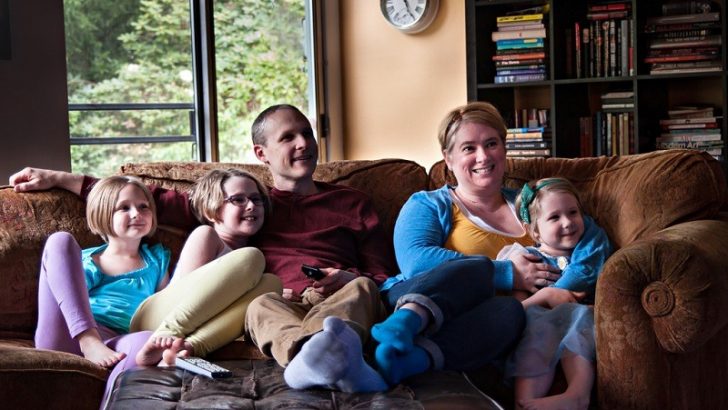January can be a strange month. The post-Christmas blues begin to set in and everything seems a little flat after the hectic Christmas period.
Bills are pouring in, the focus is back on the cheerless news about the economy and it’s difficult to get back to the reality of our mundane existence with the same old problems and struggles, and the feeling that life is often one step forward and two steps back.
Often, when our families are a little more at ease and have extra time off, we see the contrast between how happy and stress-free life can be.
What I love best about the few days after Christmas is the feeling of no deadlines and no expectations — there’s the rare treasure of time, time to watch favourite films together, to play a few board games and to just enjoy a rare period of rest and relaxation.
January can bring us back to earth with a bang and it’s no surprise that many people feel depressed and overwhelmed with the seemingly endless obstacles that lie ahead.
It used to be very common around New Year’s Eve and New Year’s Day to hear people talking about their new year’s resolutions.
It’s now equally common to find people who see no point in making promises and planning changes that they know they won’t stick to. Maybe the main problem is trying to do too much, too quickly and, like all over-ambitious plans, our plans for life-changing modifications rarely last until Valentine’s Day.
However, it is valuable to have some goals and objectives for the year ahead — planning for the future we desire is one way of banishing the blues. Putting in place some sort of strategy for change is also the first step in trying to maintain a bit of that Christmas magic all year round.
When looking to the future, it’s good to focus on our individual goals, but often, when it comes to improving family life, it’s better to instigate a few resolutions that involve everyone.
The greatest need most families seem to share is the need for more time. I often feel like I’m chasing my tail and that there just aren’t enough hours in the day, a feeling the majority of parents are all too familiar with, no matter what their circumstances.
Hence to my first family resolution which involves putting the brakes on the intense activity that seems to be part and parcel of daily life.
Rethinking the family calendar might seem difficult at first, but a few small changes can reap huge benefits when it comes to quality of life. We’re all inclined to over-schedule, but we can start to question which activities can easily be dropped without any undue hardship.
Children should be actively involved in setting the family priorities — maybe soccer on Monday, ballet on Tuesday and swimming on Friday isn’t what your child really wants or needs.
Children and adults need unstructured time. When we free up time, we need to resolve how it will be used.
It sounds bizarre, but if we don’t schedule the unscheduled time, it just won’t happen. We need to make ‘stay-at-home’ Saturday or ‘film-night’ Friday as part of our planning so the family is seen as coming first in our list of priorities.
As well as focusing on the children, those who are married can use the start of a new year to look at their relationship and how they can recapture their own magic moments.
Foryourmarriage.org, an initiative of the United States Conference of Catholic Bishops, has some new year’s resolutions for couples on their website.
I particularly like the ones which suggest that married couples arrange specific ‘date nights’ for the first few months of the year and that they read at least one book which might help to strengthen their relationship.
Marriage is a sacrament of service, so another resolution mentions getting involved in some sort of service to the local parish or community. This can be done as a family or as a couple and could be as simple as getting involved in a parish fundraising project or organising a weekly Sunday school for small children.
It’s often claimed that it takes just 21 days to form a new habit. In reality, the reason we fail so often in our attempts to change is because we don’t plan for failure.
We’re so sure of success that when we fall at the first hurdle, we give up without a fight. If we don’t succeed immediately in sticking to our resolutions, we sigh in defeat and hope for better luck next year.
Our real strategy should be to take it day by day and, as the saying goes, ‘If at first you don’t succeed, try, try again’.
Alone, it may seem impossible, but as Christians, we have the hope that, with God’s help, the new year really will see some new changes for the better and that’s good news no matter what the gloomy forecasters predict.


 Maria Byrne
Maria Byrne We need to make 'stay-at-home Saturday or 'film-night' Friday as part of our planning so the family is seen as coming first in our list of priorities
We need to make 'stay-at-home Saturday or 'film-night' Friday as part of our planning so the family is seen as coming first in our list of priorities 